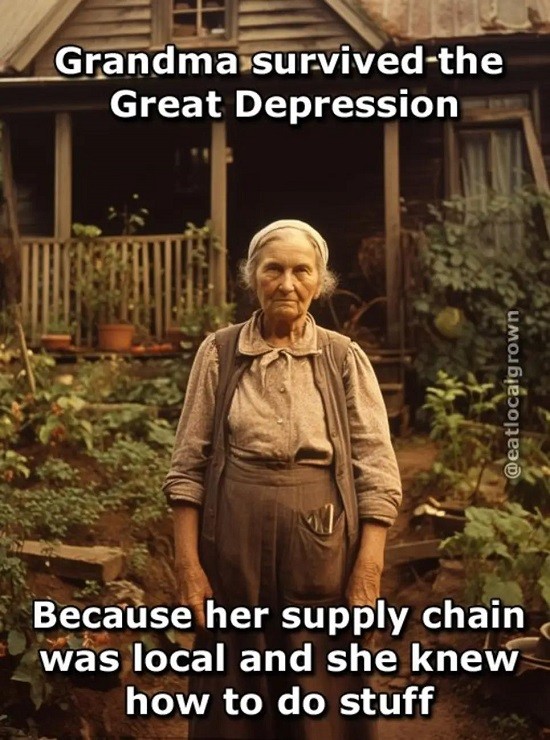Grandma Survived the Great Depression Because her Supply Chain was Local and She Knew How to do Stuff
We're taking care of my 92-year old mother-in-law here at home. She has the usual aches and pains and infirmities of advanced age but her mind and memory are still sharp. Her memories of her childhood are like a time capsule from the 1930s. My mom-in-law has always lived in the same general community here in Hawaii. She's never lived more than about 10 miles from the house where she was born (long since torn down) in 1931. Listening to her memories (and asking for more details) is to be transported back to the 1930s, an era of widespread poverty unrelated to the Great Depression. Many people were poor before the Depression. They were working hard but their incomes were low. Gardens were not a hobby, they were an essential source of food to feed a table of hungry kids and adults. Candy, snacks, sodas, etc. were treats reserved for special occasions and holidays. Kids usually went barefoot because shoes were outside the household's limited budget. Neighbors helped with births and deaths. Since no one could even dream of owning a car, transport was limited. Children and adults walked or biked miles to school or work. Many sole proprietors made a living delivering vegetables, meat and fish around the neighborhoods. (This distribution system is still present in rural France where my brother and sister-in-law lived for many years). Each vendor would arrive on a set day / time and housewives could gather to buy from the proprietor's jitney or truck. Children could eye the few candies longingly, and if they were lucky, a few pennies would be given to them to buy a candy. Locally baked bread was delivered by boys. Milk was delivered by small local dairies. If we compare the financial and material wealth most enjoy today with the limited income and assets of the pre-war era, we would conclude they lived in extreme poverty and their lives must have been wretched as a consequence. But if we compare health and endurance, well-being, security, general attitudes, family and community ties and values, we would conclude that it is we who are impoverished and it was their lives that were rich in these essentials of human life. The world has changed since the 1930s, of course. Materially, our wealth and options of what to do with our lives are off the charts compared to the 1930s. But if we look at health, security, well-being, community ties, social cohesion and civic virtue, our era seems insecure, disordered and deranging.



